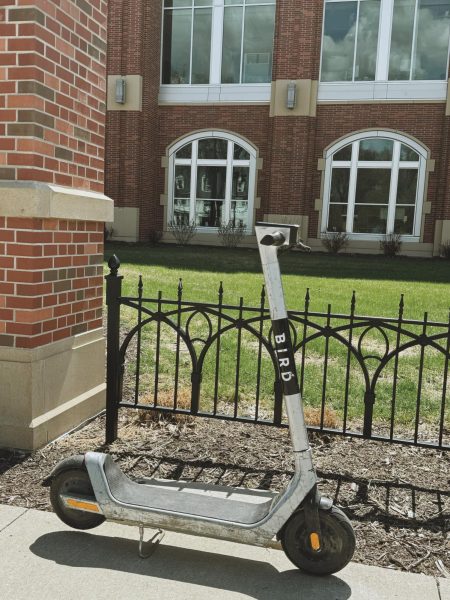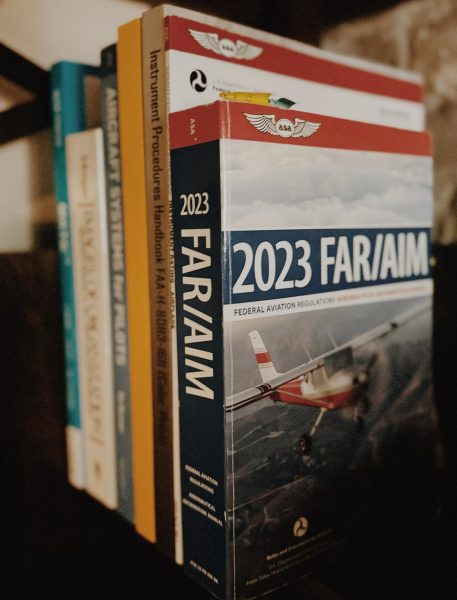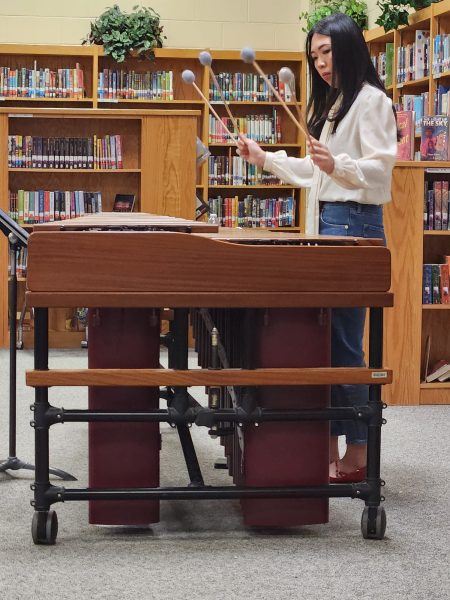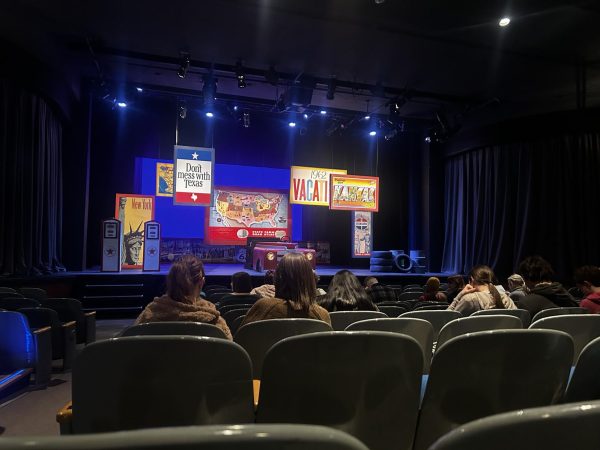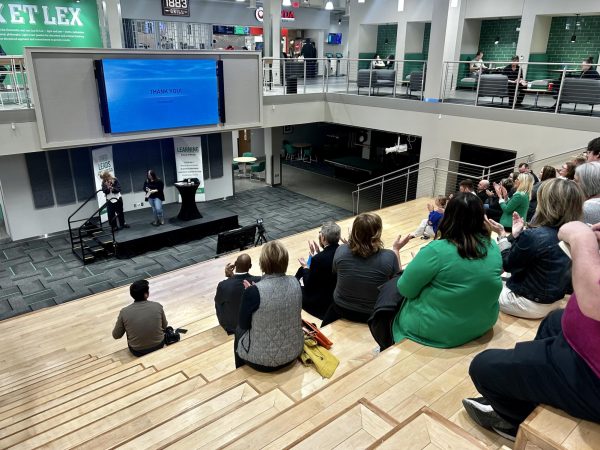Charles Haga: Then and Now Q&A
February 14, 2022
Charles “Chuck” Haga was the Editor-In-Chief of the Dakota Student once upon a time from 1969 to 1971 where he was able to let his curiosity and creativity flourish. I interviewed Haga about his time at UND and the Dakota Student and about what adventures he went on after college, and wow, I envy the life he has lived.
What was the publication like during your time on as a reporter and Editor?
“I started as a reporter when I started school in 1967 here at UND, and we fiercely guarded our independence. We wanted to write things that were relevant to a student population, and we did not shy away from some controversy. This was the time of the Vietnam War, the draft, and a lot of political demonstrations, and there were students that did not like the fact that we were getting so involved.”
Haga believed you should step on toes whenever you get the chance. My takeaway from that statement from Haga is that you only get one life and only you can choose how you want to live it.
What were a few of your favorite articles that you wrote when you were on staff?
“We marked the very first Earth Day in 1970 by putting out a special edition of the Dakota Student. I was Editor then, and I wrote a bunch of editorials about the war and the draft. We objected to how the women were locked up at night in the dorms, and we also raised questions about tuition and the concept about in loco parentis, which is where the university puts itself in the place of our parents. We wanted to be seen as and treated as adults not as children. We fought for rights for the students to weigh in on courses and faculty teaching those courses.”
Haga has made many accomplishments in trying to better the University, such as in loco parentis and the SELFI surveys. I cannot think of a professor who treats their students like they are still in high school because heck, we are paying to be here, and the SELFI surveys give students the chance to give feedback on courses and faculty.
What were your favorite parts of being on staff and being editor? What were your least favorite parts?
“It is a very time-consuming job, and it can affect your studies and grades if you let it. It can be trying at times to rely on other people to do their jobs so you can do yours, but I loved having a voice and exercising that voice. I loved being able to speak out about certain things. The thing I enjoyed the most was being able to express myself and have a point of view. We got some good debates and discussions going, but it disappointed me that there were always students that did not see the Dakota student as relevant. We printed the paper twice a week and made it available all throughout campus, and I am old school and miss the printed newspaper. The important thing is to make it relevant to the university community and students no matter how it is produced. Students especially should feel it is their newspaper as somewhere they can go with complaints or concerns and can depend on to expose some problems.”
What made you want to become a writer?
“I started earlier than the Dakota Student back in junior high school. I often say that I became a journalist because I am insatiably curious about almost all things and an incurable gossip. Once I learn something, I want to share it with somebody and shout it to the world. I started my own little newspaper, a mimeograph newspaper, in junior high school. I would fill four or five pages with jokes, sports news, and other news, and I sold it two times a week for a nickel a copy. By the end of subscription day, my pockets would be bulging with nickels and dimes. I even sold a half page ad to the local creamery. That got me a pig’s dinner once a week, which was two sundaes and a banana split. I liked the attention it brought me, and it fed my curiosity. When I went on to college, I came here because of what was then called the journalism department. I just really felt like that was what I wanted to do for a living, stick my nose in other people’s business and write about it.”
When did you start teaching communication?
“I left before graduating in 1971 and went to work for the Grand Forks Herald for three or four years and then came back to UND in 1976. I finished my undergraduate degree and entered graduate school and spent two years working on a master’s degree in Modern European History. I then spent a year in Europe, primarily in Norway, because my father was a Norwegian immigrant, and I was interested in immigration history. Also, the language and the Norwegian newspaper press interested me in how it was different from American newspaper press. I came back and taught for a year here at UND and was a full-time professor for one year. I decided that it is not really what I wanted to do. I wanted to be a journalist, not teach about it, so I went back to the Herald and worked another 7 years there. Then I went to the Star Tribune in Minneapolis and was there for maybe a little more than 20 years as a reporter and occasional Editor. I retired from there in 2007 and moved back here because my son and three grandchildren are here in Grand Forks. I went back to work at the Herald then fully retired and started teaching at UND in 2013.”
What made you want to teach communications at UND?
“I thought I learned a few things over the course of time and thought I had something to share. I really love the university, and I like the idea of trying to help some young people get into the business because I believe fervently in the importance of journalism, especially daily journalism. If our democracy is going to be preserved, we need good, sensitive, thoughtful, bright, young people coming into the business.”
Haga has regrets in life, but he tries to learn not to spend too much time dwelling on those. Haga has spent his life at two newspapers, the Herald and the Star Tribune, and sometimes wishes he would have sampled life more in other parts of the country experiencing the life, culture, and rhythms of other places.
I loved interviewing Haga because I, wanting to be a journalist, received such an inspiring story and tips that I have had the pleasure of passing on to you. My biggest takeaway from Charles “Chuck” Haga is to not let life pass you by because it goes by so quickly you might miss it.
Kelsie Hildebrand is a Dakota Student General Reporter. She can be reached at [email protected].



